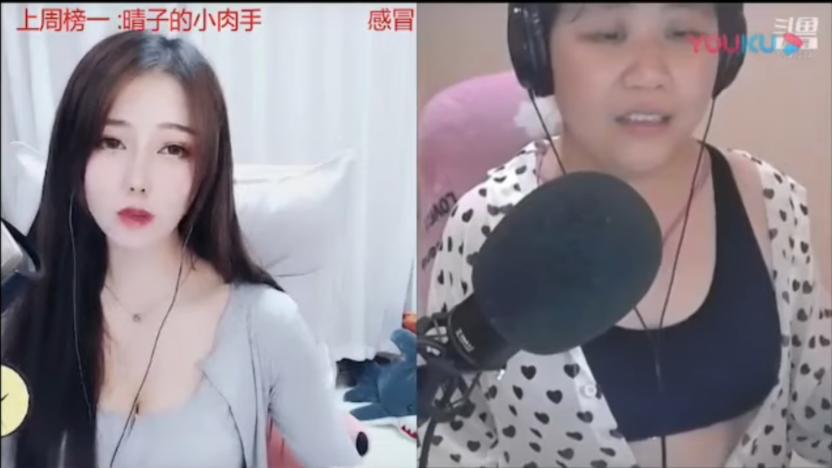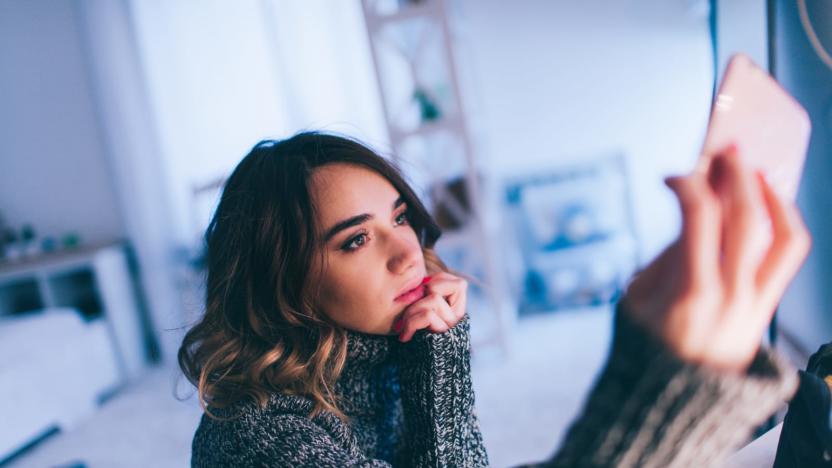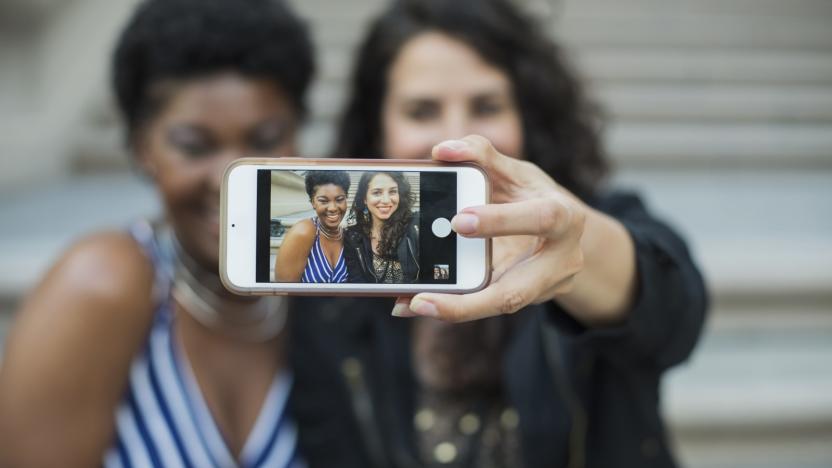facetune
Latest

Livestreamer caught using face filter to make herself look younger
It appears we're now in the era of face filter malfunctions. The popular Chinese vlogger known as "Your Highness Qiao Biluo" was revealed to be decades older than the online persona she projected to her thousands of fans. A technical glitch during one of the star's livestreams last week showed that she was using a face filter, reported Lychee News. The young, long-haired woman that China's Global Times said fans called a "cute goddess" was gone -- and in her place was an unrecognizable older woman.

Selfies are shifting our definition of beauty
Selin Pesmes says she uses selfie filters because they smooth out her skin and present a "better-quality version" of herself. That's likely the same thinking for the millions of other people who regularly post edited pictures of themselves on social media, which are often created using selfie-enhancing tech from apps like Instagram, Snapchat and FaceTune. While some of these filters are fun or creative (for example: They can give you dog or bunny ears), many of them are simply there to make you look prettier. With a quick swipe, they can get rid of blemishes, fix the nose you don't perceive as perfect or give you lips that resemble Kylie Jenner's expensive fillers. Some people love these selfie filters so much that they're going to plastic surgeons and asking for cosmetic procedures that'll make them look like a software-enhanced version of themselves.

Selfie filters are driving new cosmetic surgery trends
Doctors have noticed a new trend: People want to change their body to look like their edited selfies. Specifically, they're referring to photos of themselves taken with apps like Snapchat and Facetune that apply filters to instantly touch-up their appearance. Unsurprisingly, the phenomenon is rooted in body appearance issues, and it even has a name: "Snapchat dysmorphia."

Turning mugshots into models: We have some fun with Facetune
Facetune is currently one of the most popular purchases on the App Store, due in no small part to its ability to drastically alter your selfies. You can tweak just about every aspect of your portraits, from smoothing skin textures to tweaking tones; you can even go as far as altering the shape of your face. In short, it's a rather powerful tool. Today, I decided to have some fun with a few photos of people at their worst. Where do people look their worst, you ask? In mugshots, of course! I snagged a few shots off of Muggn (which obtains the photos via public records) and loaded them into Facetune. Some required more work than others, and I'm not claiming to be a digital wizard when it comes to photo manipulation, but I think we can all agree that the app did a rather respectable job cleaning up many of the scars, teary eyes, tattoos and wrinkles that marred the original photos. Fabulous, aren't they?

Facetune is a powerful portrait editor for iOS
It's amazing how many editing tools that used to require Photoshop are migrating to inexpensive iOS apps. Facetune, a US$2.99 app for the iPhone can take any portrait and retouch complexion, eyes (even changing eye color), remove stray hair, add hair where it is missing, change hair color and whiten teeth. Blemishes can be removed, and complexion can be smoothed. Once you are done, you can add some built-in filters, then share the photo via your favorite social network or email. The app starts up the first time with some on-screen help, but most of the functions are pretty obvious. It was easy to improve a photo taken with the iPhone, especially since close-ups with the iPhone camera suffer from a bit of barrel distortion, leaving faces looking heavier than real life. Of course Facetune can fix that, or exaggerate it, so like any photo editor, you can leave reality behind or just make subtle improvements. I especially like the patch tool. Click on a mole or blemish and the app takes some pixels from an adjacent part of the face to replace it. If you don't like the area you selected, you can change where the pixels are being sampled. The final edit looks natural. Facetune has a competitor called Perfect365 (free). It performs the same functions, but in a different way. Perfect365 analyzes the image and lets you apply a number of templates to clean up the portrait. It also has some manual tools. Both apps are very effective at what they do. Perfect365 is a bit more automated, while Facetune gives you more hands-on editing tools. I think the only caution I would add about any of these programs is that it is easy to overdo. Faces can become pasty or ghost-like. Having a face too perfect just looks fake and is not usually flattering. Facetune is great for cleaning up photos you might use on Facebook, or on any photo you want to share. You'll also likely find many friends will be sending you their photos for you to enhance. The app is a clever and powerful tool that does what it advertises and really can improve portraits. If you have a need to do some retouching right on your iPhone, Facetune is an excellent choice. Facetune is designed for the iPhone and iPod touch. An iPad version is on the horizon with some additional features. The app is optimized for the iPhone 5 and requires iOS 5 or greater. Check the gallery for some sample photos. %Gallery-193200%



